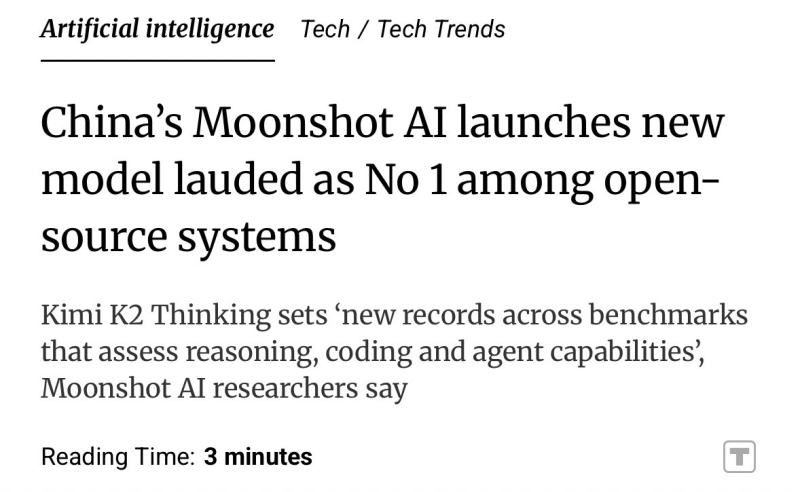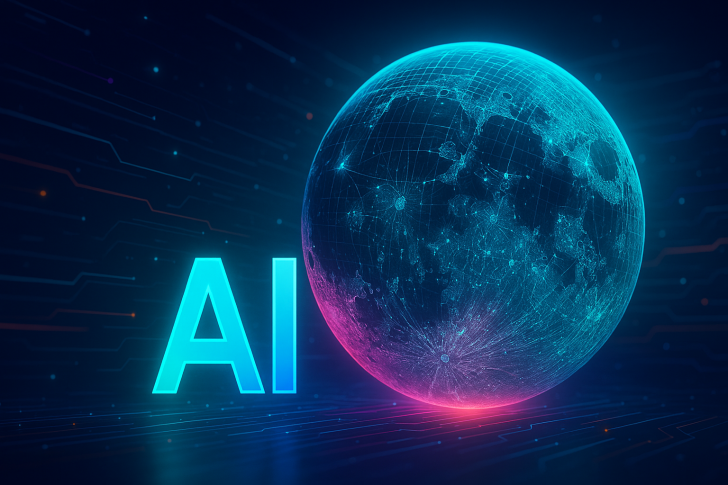● A recent tweet from JustDario sparked conversatio nabout the growing gap between U.S. AI giants and nimble Chinese startups. He noted that "OpenAI splurged a biblical amount of capital to build a private model in a way that will never be profitable and now needs a bailout — on the other side Chinese startups with a fraction of the funding and releasing open source models thrive."

● His comments came as Moonshot AI's Kimi K2 Thinking model earned recognition as the top open-source system, setting new records in reasoning, coding, and agent capabilities according to the company's researchers.
● The success raises questions about competing strategies in AI development. While some governments consider taxing high-intensity compute clusters and expensive model training, experts worry these policies could hurt companies already burning through capital. Worse, they might push talent toward more efficient ecosystems like China's thriving open-source community.
● What makes Moonshot AI's achievement notable is the efficiency. OpenAI pours massive resources into closed models, while Chinese developers are producing competitive systems on smaller budgets. Kimi K2 Thinking shows that open-source collaboration and lower costs can deliver world-class results.
● The takeaway is clear: one side of the world struggles with expensive, proprietary systems while the other rapidly advances through efficient, open innovation. How tax policies shape these competing approaches could determine who leads the next era of AI development.
 Eseandre Mordi
Eseandre Mordi

 Eseandre Mordi
Eseandre Mordi


